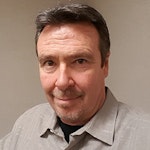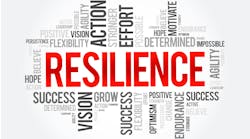Wow, can you believe this year is nearly over? I hope that your professional and personal lives have been full of significant and positive events this year and that you have been able to positively influence your teams and colleagues in your business. Something special that happens around this time of the year is the recognition of The Best Workplaces in our industry as nominated by you, our loyal readers. FenderBender is looking to highlight the shops that go above and beyond in helping develop their employees, both professionally and personally, to build an all-star team and retain it.
I am excited to see who you all believe is worthy of this recognition. As I have been thinking about who I will nominate, I realize once again that my vote will be based on the character and characteristics of the people I believe are deserving. I believe the best leaders have some of the best vision into the wants and needs of the people they support and mentor. These leaders have developed the ability to see themselves clearly and also see their peers and direct reports through the lens of genuine care and respect for people.
Great leaders have virtually visited the opticians office to pick out some glasses—corrective lenses, if you will. Many of us are affected by a physical vision affliction known as nearsightedness, or “myopia.” In the physical world, this condition can be corrected with glasses or Lasik surgery so that we can see things clearly even at a distance. In the business world, with regard to the world of emotional intelligence and leadership, myopia is when everything in life is about “me.” I can see really well up close and I can be very self-absorbed and focused on myself. Meanwhile the people in the distance, their needs and wants and issues remain foggy and blurry because I am so self-centered. Great leaders have had Lasik performed on their heart in order to clearly see and care about others.
Farsightedness is the condition where you can see other people at a distance. It’s where you can dissect and discern their flaws from 100 yards away, but you can’t see your own flaws and shortcomings. You’ve lost the ability to be introspective and ask the hard questions of yourself to see if there are areas in your life that need work so that you can better lead and relate to people around you. Great leaders put on reading glasses or “cheaters” to see up close and personal.
Those who don’t work on correcting farsightedness often find themselves affected by blind spots. These blind spots—things like envy, insecurity, irritability and pride—can be clearly seen by those around you but you just can’t see it. Great leaders have blind spot monitors in their lives. These monitors are people that you trust to point out your blind spots that you may not recognize. Great leaders have their own mentors that are invaluable in helping you become a better mentor yourself.
Astigmatism is another affliction that great leaders may need to have corrected. This is where your vision of other people is blurred and you begin to assign value to others based on their size, shape, color, ability or disability, and many other outward traits while never acknowledging the person for who they are inside. We are in a culture today that cares more about what we see in people so we can pass judgement on them. Great leaders get to know the person for who they are without the prejudice of cultural norms and our own skewed thinking. When we judge people, we fail to see them for the moldable masterpiece that they are.
As you can see by now, there is one thing that all great leaders do well: They see people and situations clearly. That doesn’t mean they always get it right, but they’re self-aware enough to have stopgaps in place to help them with their weaknesses. In my career, I’ve always been very fortunate to have people in the industry that took a liking to me. I was smart enough to realize that it would be in my best interest to listen to them and take guidance from them when what I was doing needed improvement. That’s how you can actually positively influence those around you, and it’s what ends up creating a great workplace.





